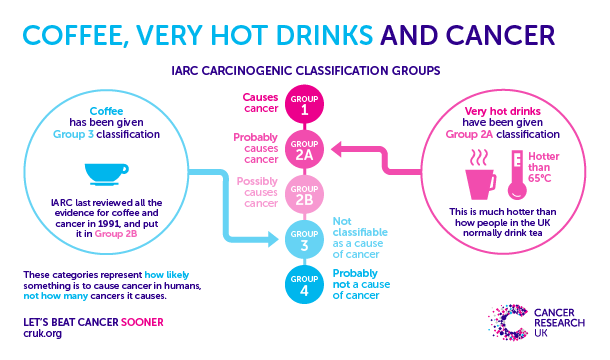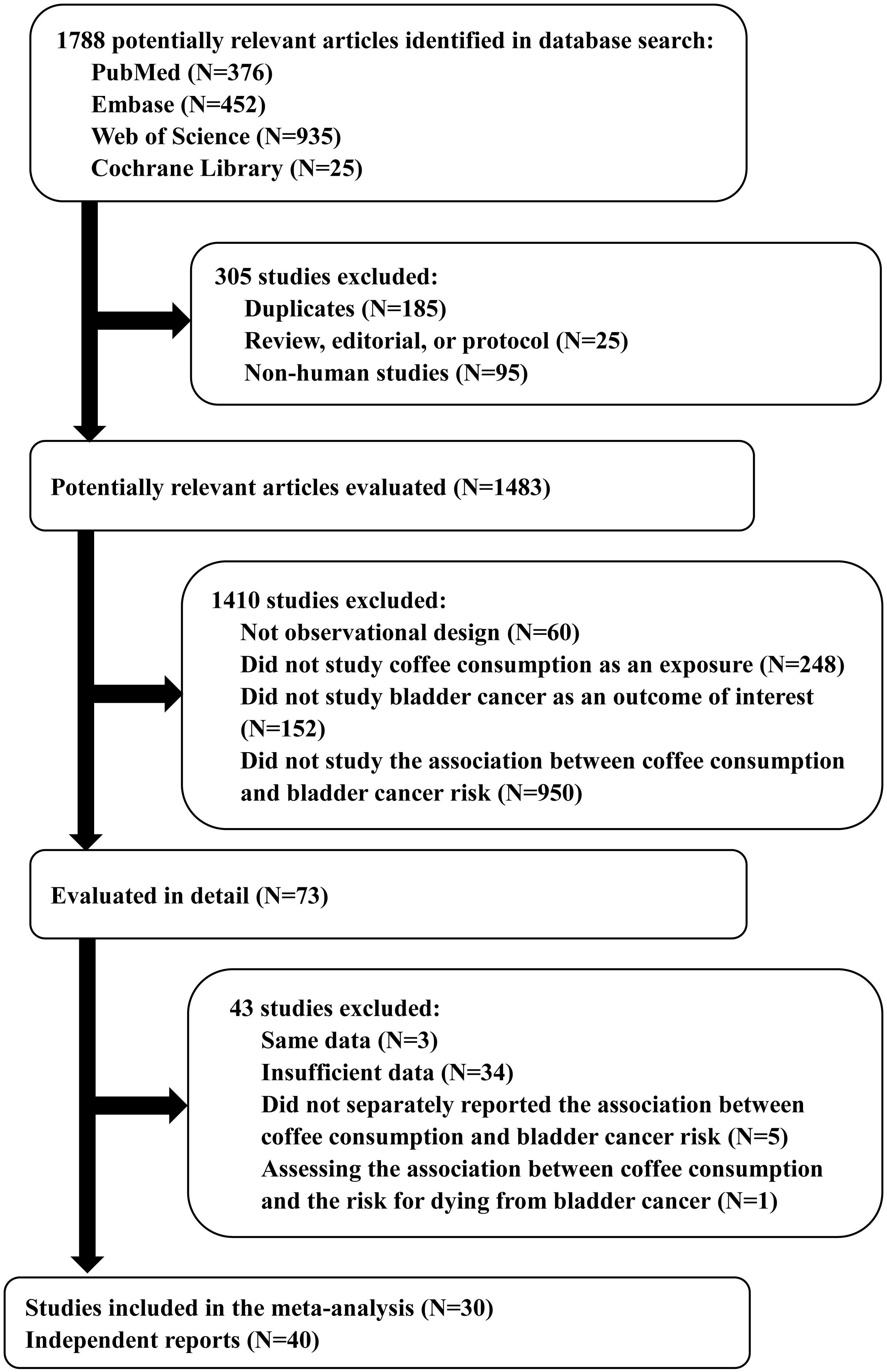As an Amazon Associate CoffeeXplore.com earns from qualifying purchases.
Can Coffee Cause Bladder Cancer? What Science Says
For years, a cloud of suspicion has hung over one of the world’s most popular beverages, leaving many to wonder: can coffee cause bladder cancer? You’ve likely seen conflicting headlines or heard warnings based on outdated information, making it difficult to know what to believe about your daily cup. This uncertainty creates a real concern for health-conscious individuals who simply want a clear, science-backed answer.
Based on the most comprehensive recent evidence, coffee consumption is not considered a direct or independent cause of bladder cancer. Early observed links are now largely understood to be due to the confounding effects of cigarette smoking.
This guide cuts through the noise by breaking down the complete scientific story. We will unravel why early studies were misleading, reveal the true culprit that skewed the data for decades, and present the definitive conclusions from the largest and most reliable modern research. By the end, you will have a clear, confident understanding of what the science truly says about coffee and bladder cancer risk.
Key Facts
- Official Reclassification: In 2016, the International Agency for Research on Cancer (IARC) re-evaluated the evidence and reclassified coffee from “possibly carcinogenic” to Group 3, meaning it is “unclassifiable as to its carcinogenicity to humans.”
- The Smoking Confounder: The strongest known risk factor for bladder cancer is cigarette smoking. Because heavy coffee drinking and smoking are often linked behaviors, early studies that didn’t properly account for smoking mistakenly attributed the cancer risk to coffee.
- Massive Study Finds No Link: A major 2019 meta-analysis that combined data from 16 prospective studies, covering over 2.1 million people, found no significant independent association between drinking coffee and the long-term risk of developing bladder cancer.
- Metabolism Matters: Compounds in tobacco smoke cause the body to produce more of the CYP1A2 enzyme, which makes smokers metabolize caffeine much faster than non-smokers. This biological difference can alter how coffee’s components affect the body.
- Research is Evolving: While the consensus points away from a direct link, the science continues to evolve. Recent genetic studies, known as Mendelian Randomization, have produced some conflicting results, showing that researchers are still exploring the nuances of this complex relationship.
The Bottom Line: Does Coffee Directly Cause Bladder Cancer?
Based on the most comprehensive recent evidence, coffee consumption is not considered a direct or independent cause of bladder cancer. Early observed links are now largely understood to be due to the confounding effects of cigarette smoking, which is the single strongest risk factor for the disease. The overwhelming body of current scientific evidence shows that once smoking is properly accounted for, the association between coffee and bladder cancer effectively disappears for most people.

The main takeaway from decades of research is this: The perceived link between your morning cup and bladder cancer was largely an illusion created by a far more dangerous habit.
So why has there been so much confusion for decades? The story is all about a critical hidden factor that early researchers failed to adequately address, leading to years of unnecessary concern for coffee drinkers everywhere.
Unraveling the Confusion: Why Early Studies Suggested a Link
The initial concern over whether can coffee cause bladder cancer stems from early research that, while pioneering, was ultimately flawed. In 1991, this preliminary data led a prominent health organization, the International Agency for Research on Cancer (IARC), to classify coffee into Group 2B, labeling it as “possibly carcinogenic to humans.” This classification created a lasting public perception of risk that has been difficult to undo, even with much better data now available.
Quick Fact: In 1991, the IARC classified coffee as ‘possibly carcinogenic,’ a decision that would be re-evaluated 25 years later based on better data.
The problem was that this early research suffered from several critical limitations that made it impossible to draw a firm conclusion. The primary issues included:
- Inadequate Control for Smoking: Many early studies did not, or could not, properly separate the effects of coffee from the effects of tobacco. Since heavy coffee drinkers were often heavy smokers, the extremely high cancer risk from smoking was incorrectly associated with coffee.
- Limited Evidence and Sample Sizes: The studies available at the time were often small. Research based on limited numbers of people is more likely to produce statistically unstable or coincidental findings compared to the massive studies conducted today.
- Study Design Flaws: Much of the early evidence came from case-control studies, which rely on people recalling past habits. This method can be less reliable than prospective studies, which follow large groups of healthy people forward in time to see who develops a disease.
These limitations meant that while an association appeared to exist, it was not a true causal link. It took decades of more sophisticated research to finally identify and untangle the real variable that was driving the numbers.
The Smoking Gun: How Tobacco Skewed the Coffee-Cancer Connection
The single most important factor in the historical coffee bladder cancer link is cigarette smoking. Smoking is not just a minor variable; it is the strongest known and most dominant risk factor for developing bladder cancer. The relationship between coffee and smoking is so intertwined that failing to account for it makes any conclusion about coffee’s independent risk unreliable.
Smokers not only tend to drink more coffee than non-smokers, but their bodies also process it differently. This created a perfect storm for statistical confusion in early research. A 2017 prospective study powerfully illustrated this point: it initially found a positive association between coffee and bladder cancer, but that link was “substantially attenuated” and became insignificant after researchers properly adjusted for cigarette smoking. Among people who had never smoked, there was no association at all.
This table breaks down the core issue:
| Factor | Impact on Bladder Cancer Risk | Relationship with Coffee |
|---|---|---|
| Smoking | Strongest known risk factor | Smokers tend to drink more coffee |
| Coffee | No independent association found | Association disappears when smoking is accounted for |
Pro Tip: When evaluating health research, always ask: ‘What other lifestyle factors could be influencing the results?’ In this case, smoking was the key.
The evidence is clear: the coffee and smoking connection was a case of mistaken identity. Researchers were seeing the powerful carcinogenic effects of tobacco but attributing them, in part, to the coffee that so often accompanied it.
What Happens in Smokers?
The reason smoking status is so critical goes beyond simple behavior; it involves deep-seated biological differences in how the body processes compounds from coffee. The key player here is a specific liver enzyme known as CYP1A2.
The process works like this:
- Tobacco Smoke Exposure: Compounds found in tobacco smoke, specifically polycyclic aromatic hydrocarbons, enter the bloodstream.
- Enzyme Upregulation: These compounds cause the liver to significantly ramp up its production of the CYP1A2 enzyme.
- Faster Caffeine Metabolism: CYP1A2 is the primary enzyme responsible for breaking down caffeine in the body. With more of this enzyme available, smokers metabolize caffeine and other coffee compounds much more rapidly than non-smokers.
- Altered Biological Effects: This faster caffeine metabolism means that the duration and concentration of coffee’s bioactive compounds in a smoker’s body are different. This fundamental metabolic distinction is a crucial reason why the effects of coffee consumption cannot be properly studied without separating smokers from non-smokers.
What the Latest, Largest Studies Conclude (2025 Update)
To get the most reliable answer to the question “can coffee cause bladder cancer,” scientists have turned to the most powerful tools in epidemiology: large prospective studies and meta-analyses. A meta-analysis combines the results from many individual studies to create a single, more statistically powerful conclusion. The findings from this modern wave of research have been consistent and reassuring.

Here is what the best available evidence shows:
- The 2016 IARC Re-evaluation: After reviewing over 1,000 studies, the International Agency for Research on Cancer officially changed its stance. They concluded there was “inadequate evidence” to suggest coffee causes cancer. As a result, they moved coffee from Group 2B (“possibly carcinogenic”) to Group 3 (“unclassifiable as to its carcinogenicity to humans”), effectively clearing it of the previous suspicion regarding bladder cancer.
- The 2019 Meta-Analysis: A massive meta-analysis of coffee and bladder cancer published in Nutrition & Metabolism provided even stronger evidence. It pooled data from 16 different prospective studies involving over 2.1 million participants. The conclusion was decisive: there was no significant association found between coffee consumption and the long-term risk of bladder cancer. This held true for men, women, and, most importantly, for never-smokers.
- No Clear Dose-Response: These large analyses have failed to find a consistent dose-response relationship, meaning that even at higher consumption levels, an increased risk does not reliably appear once smoking and other factors are controlled for.
Based on this overwhelming evidence, feel confident about your morning cup. The scientific consensus is that for the vast majority of people, coffee is not an independent risk factor for bladder cancer.
A New Frontier: What Genetic Studies Suggest
As science advances, researchers are developing new methods to investigate causal links between lifestyle factors and disease. One of the most innovative techniques is Mendelian randomization (MR). This method uses people’s genetic variations—which are randomly assigned at birth—as a proxy for a certain behavior, like coffee consumption, to determine if that behavior causes a disease without the confusion of other lifestyle factors.
When it comes to the Mendelian randomization coffee cancer question, the results have introduced a new layer of complexity, highlighting that research in this area is still active.
- 2022 MR Study: A study published in Frontiers in Genetics used this method and found no significant causal association between genetically predicted coffee intake and the risk of bladder cancer. This finding strongly supported the conclusions from the large observational studies.
- 2025 MR Study: However, a more recent MR analysis suggested a potential positive association between genetically driven coffee intake and bladder cancer risk, even after attempting to adjust for smoking.
These conflicting genetic studies show that while the weight of evidence from traditional epidemiology is quite clear, the scientific community is still working to understand the relationship at a genetic level. This transparency is crucial—it demonstrates a commitment to a complete and unbiased view of the science, acknowledging that some questions remain open for exploration.
Exploring the Details: Does the Type of Coffee Matter?
With the main question largely settled, many people have follow-up concerns: does the type of coffee or how much you drink change the risk profile? Researchers have looked into these nuances, such as caffeinated vs decaffeinated coffee cancer risk and whether a dose-response coffee cancer effect exists at very high intakes.
The evidence here is less definitive than the overall conclusion, but it offers some important insights. The 2019 pooled analysis of 13 case-control studies uncovered a particularly interesting detail: it found an increased risk of bladder cancer specifically among never smokers who consumed more than four cups of caffeinated coffee per day. No such association was found among smokers.
While some studies suggest a risk might be linked to caffeinated coffee, data on this distinction is often limited.
This suggests that if any risk exists, it may be confined to a very specific scenario: high levels of caffeine intake in people who have never smoked. However, it’s crucial to note that data separating caffeinated from decaffeinated coffee is often limited in major studies, making firm conclusions difficult. There is no strong evidence to suggest that instant coffee cause cancer at a different rate than brewed coffee, as most large-scale research does not differentiate between preparation methods.

The bottom line is that while extreme consumption might carry some theoretical risk in specific subgroups, for the average person, the type of coffee consumed is not considered a significant factor in bladder cancer risk based on current evidence.
For those looking to enjoy their daily coffee while being mindful of overall bladder health and potential irritants, exploring options like low-acid or organic coffee can be a great choice.
FAQs About Coffee and Bladder Health
Here are direct answers to some of the most common follow-up questions about coffee, caffeine, and bladder health, based on the available scientific data.
Can drinking too much coffee damage your bladder?
While not linked to cancer, drinking excessive amounts of coffee can affect bladder function. Caffeine is a known diuretic, meaning it increases urine production. It is also thought to have a direct effect on the bladder’s smooth muscle, which may irritate the tissues and cause involuntary contractions, leading to an increased sense of urgency or frequency of urination in sensitive individuals.
What is the #1 cause of bladder cancer?
The single most important and well-established cause of bladder cancer is cigarette smoking. According to the American Cancer Society and other major health organizations, smokers are at least three times as likely to get bladder cancer as nonsmokers. Smoking is responsible for about half of all bladder cancers in both men and women.
What foods are linked to bladder cancer besides coffee?
While no food is as strongly linked to bladder cancer as tobacco, some dietary patterns may influence risk. A 2018 research review noted an increased risk associated with high consumption of processed or red meats. Diets high in fried foods have also been associated with a greater risk of bladder cancer recurrence. Conversely, a diet rich in fruits and vegetables is generally recommended for overall health and cancer prevention.
Does coffee increase the risk of other types of cancer?
The relationship between coffee and other cancers is complex. The 2016 IARC re-evaluation found that coffee consumption was actually associated with a reduced risk for certain cancers, such as liver and uterine endometrial cancer. For most other cancer types, there is inadequate or no evidence of an association, positive or negative.
Is there a difference between instant coffee and brewed coffee for cancer risk?
Current large-scale scientific studies on coffee and bladder cancer risk do not typically distinguish between different preparation methods like instant versus brewed. The research focus has been on overall consumption levels (cups per day) and the presence of caffeine. There is no strong evidence to suggest that one type is safer or more dangerous than the other regarding bladder cancer.
Final Summary: What This Means for Your Daily Coffee
After decades of research and initial confusion, the scientific narrative on coffee and bladder cancer has become much clearer. The journey from the IARC’s “possibly carcinogenic” classification in 1991 to its reversal in 2016 is a testament to how science self-corrects with better data. The initial association was a statistical ghost, created by the powerful confounding effects of cigarette smoking.
For the millions who enjoy coffee every day, the conclusion from the most robust modern evidence provides significant reassurance. You can feel confident that your habit is not considered an independent risk factor for bladder cancer.
Here are the most critical takeaways:
- No Direct Causal Link: The overwhelming scientific consensus is that coffee does not directly cause bladder cancer. The link observed in early studies was an artifact of confounding by smoking.
- Smoking is the Real Culprit: Cigarette smoking remains the single most significant and preventable risk factor for bladder cancer. Any discussion about lifestyle risks for this disease must start and end with smoking.
- Enjoy in Moderation: For most people, moderate coffee consumption is a safe part of a healthy lifestyle. While some nuanced questions remain about very high intake levels in specific populations, the evidence does not support the need for the general public to avoid coffee out of fear of bladder cancer.
Share this article with a fellow coffee lover to clear up the confusion once and for all.
Last update on 2025-12-12 / Affiliate links / Images from Amazon Product Advertising API

